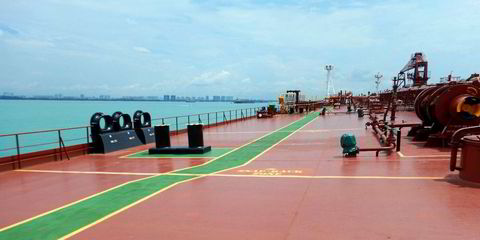London-listed bulker owner Taylor Maritime Investments says sentiment remains upbeat in the smaller bulker sectors.
In its first quarter update, the company said charter rates for geared ships had remained more stable than usual through the typically softer Chinese New Year period.
There was a steady flow of grains from Atlantic load areas, and continued rerouting of some trade via longer alternative routes owing to disruptions in the Panama Canal and events in the Red Sea.
“Sentiment remains positive for the months ahead with East Coast of South American grain shipments accelerating and industrial metal prices rising, suggesting firming global activity,” TMI added.
Chief executive Ed Buttery said: “Due to our active chartering strategy, we straddled the expected seasonal softening in the market and then took opportunities to fix period charters as rates improved.”
“Asset values strengthened considerably and contributed to our solid performance,” he added.
“While we continue to diligently monitor market and geopolitical developments, we maintain our favourable outlook for our geared dry bulk segment,” the CEO said.
The total net asset value return in the first three months reached 10.5%, driven by improving freight rates and strong appreciation in asset values, underpinned by positive forward sentiment.
On 31 March, NAV stood at $1.48 per share, up from $1.36 three months earlier.
TMI and subsidiary Grindrod Shipping generated average time charter equivalent earnings of $12,430 per day for the quarter, up from $11,977 in the fourth period of 2023.
The fleet outperformed benchmark indices by $1,148 per day, or 11%, for the combined handysize fleet, and $2,116 per day, or 16%, for the supramax/ultramax fleet.
The market value of the 39 Japanese-built bulkers increased by 6.7% to $793m.
TMI said current projections suggest minor bulk and grain tonne-mile demand growth of 4.2% in 2024.
“Nonetheless, global disruption from the ongoing impact of Panama Canal transit restrictions and events in the Red Sea should continue to positively affect tonne-mile demand, soaking up tonnage on longer duration voyages,” the company said.






